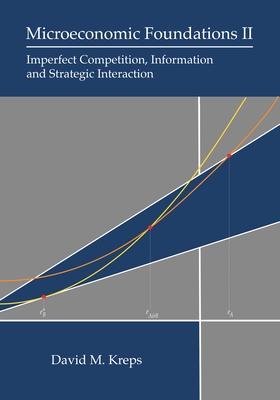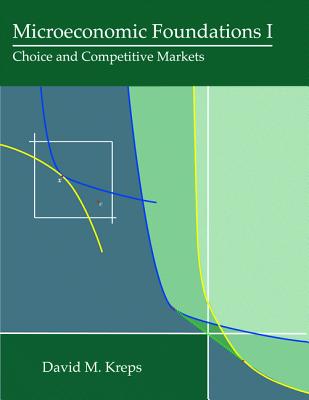图书简介
This extensively revised second edition provides a comprehensive overview of transient global amnesia (TGA). First, it deals with the history of TGA before moving on to clinical and diagnostic features and differential diagnosis. Subsequent chapters then discuss the investigation and predisposing and precipitating factors for TGA before attempting to synthesise these many strands in order to formulate ideas about the pathogenesis of TGA. Each of the chapters is devoted to a practical and structured overview of the particular topic, with use of case studies to illustrate the material. Based in part on the author’s experience of TGA cases over 20 years and in part on a review of the published literature, this book will hopefully enlighten clinicians from a broad range of medical backgrounds on the clinical features, investigation, and pathogenesis of TGA.Transient Global Amnesia is aimed at any clinician with an interest in, or who encounters patients with, acute amnesia: neurologists, general physicians, old age psychiatrists, geriatricians, clinical neuropsychologists, and primary care physicians, as well as other professions allied to medicine with similar interests, such as members of memory assessment teams.
History of TGA.- Beginnings: Fisher and Adams’ first accounts of TGA.- “Prehistory” of TGA.- After Fisher and Adams.- A note on nomenclature.- A note on methodology.- Summary and recommendations.- References .- Clinical features, diagnostic criteria, and possible variants of TGA.- Clinical features of TGA.- TGA archetype.- Accompanying neurological symptoms.- Time of onset: diurnal.- Attack duration.- Prognosis, recurrence.- Diagnostic criteria of TGA.- Essential features and inclusion/exclusion boundaries.- Hodges and Warlow’s diagnostic criteria.- TGA subtypes?.- Possible variant forms of TG.- Transient topographical amnesia (TTA).- Transient partial verbal amnesia (TPVA).- Transient semantic amnesia.- Transient procedural amnesia.- Transient retrograde amnesia.- Summary and recommendations .- References.- Differential diagnosis of TGA.- Transient ischaemic attack (TIA).- Other forms of cerebrovascular disease.- Other vascular pathologies, including angiography.- Cardiac disorders.- Transient epileptic amnesia (TEA).- Interrelation of TGA and TEA.- Transient psychological amnesia (TPA).- Other symptomatic causes of transient amnesia.- Migraine.- Adverse drug effect.- Hypoglycaemia.- Traumatic brain (closed head) injury.- Alcohol-induced amnesia; Korsakoff syndrome.- Fatigue amnesia.- Other causes of acute cerebral disorder.- Acute confusional state/delirium/toxic-metabolic encephalopathy.- Cerebral haemorrhage.- Acute brain infection (encephalitis).- Summary and recommendations.- References.- Investigation and management of TGA.- Neuropsychology.- Neuropsychological deficits during TGA: memory.- “Working memory”.- Anterograde memory.- Retrograde memory.- Semantic memory.- Implicit memory.- Spatial memory.- Neuropsychological deficits during TGA: other, non-memory, cognitive domains.- Language.- Visuoperceptual, visuospatial skills.- Executive function.- Neuropsychological deficits after TGA.- Neuroimaging: structural and functional.- Structural neuroimaging.- Computed tomography (CT).- Magnetic resonance (MR) imaging.- Functional neuroimaging.- Single photon emission computed tomography (SPECT).- Positron emission tomography (PET).- Functional MRI (fMRI) .- MR spectroscopy (MRS).- CT perfusion (CTP) imaging.- Neurophysiology Electroencephalography (EEG).- EEG during TGA.- Magnetoencephalography (MEG).- Transcranial magnetic stimulation (TMS).- Other investigations.- Blood tests.- Cerebrospinal fluid (CSF).- Sonography.- Arterial.- Venous; internal jugular vein valve incompetence.- Management.- Driving.- Summary and recommendation.- References.- Prognosis of TGA.- Recovery and persisting cognitive deficit.- Recurrence.- Annual recurrence rate.- Recurrent TG.- Future risk.- Cognitive decline: dementia and mild cognitive impairment (MCI).- Cognitive decline: progressive aphasia.- Stroke.- Epilepsy.- Summary and recommendations.- References .- Epidemiology of TGA (1): Possible predisposing factors.- Incidence .- Time of onset: seasonal.- Place of onset: geographical distribution.- Patient age.- Patient gender.- Patient ethnicity.- Patient social class.- Family history of TGA.- Migraine.- Patient personality traits and psychological factors.- Vascular risk factors and stroke.- Structural brain lesions, including brain tumours.- Brain infections.- Summary and recommendations.- References.- Epidemiology of TGA (2): Possible precipitating factors.- Emotional stress.- Physical effort.- Water contact or temperature change.- Sexual activity.- Pain.- Medical procedures.- Other possible precipitating factors.- Summary and recommendations .- References.- Aetiopathogenesis of TGA.- Cerebrovascular changes.- Arterial.- Venous.- Epilepsy.- Migraine.- Genetics.- Psychiatry.- Formulation: neural network models and hypothesis.- The future?.- Summary.- References.- Index.
Trade Policy 买家须知
- 关于产品:
- ● 正版保障:本网站隶属于中国国际图书贸易集团公司,确保所有图书都是100%正版。
- ● 环保纸张:进口图书大多使用的都是环保轻型张,颜色偏黄,重量比较轻。
- ● 毛边版:即书翻页的地方,故意做成了参差不齐的样子,一般为精装版,更具收藏价值。
关于退换货:- 由于预订产品的特殊性,采购订单正式发订后,买方不得无故取消全部或部分产品的订购。
- 由于进口图书的特殊性,发生以下情况的,请直接拒收货物,由快递返回:
- ● 外包装破损/发错货/少发货/图书外观破损/图书配件不全(例如:光盘等)
并请在工作日通过电话400-008-1110联系我们。
- 签收后,如发生以下情况,请在签收后的5个工作日内联系客服办理退换货:
- ● 缺页/错页/错印/脱线
关于发货时间:- 一般情况下:
- ●【现货】 下单后48小时内由北京(库房)发出快递。
- ●【预订】【预售】下单后国外发货,到货时间预计5-8周左右,店铺默认中通快递,如需顺丰快递邮费到付。
- ● 需要开具发票的客户,发货时间可能在上述基础上再延后1-2个工作日(紧急发票需求,请联系010-68433105/3213);
- ● 如遇其他特殊原因,对发货时间有影响的,我们会第一时间在网站公告,敬请留意。
关于到货时间:- 由于进口图书入境入库后,都是委托第三方快递发货,所以我们只能保证在规定时间内发出,但无法为您保证确切的到货时间。
- ● 主要城市一般2-4天
- ● 偏远地区一般4-7天
关于接听咨询电话的时间:- 010-68433105/3213正常接听咨询电话的时间为:周一至周五上午8:30~下午5:00,周六、日及法定节假日休息,将无法接听来电,敬请谅解。
- 其它时间您也可以通过邮件联系我们:customer@readgo.cn,工作日会优先处理。
关于快递:- ● 已付款订单:主要由中通、宅急送负责派送,订单进度查询请拨打010-68433105/3213。
本书暂无推荐
本书暂无推荐














